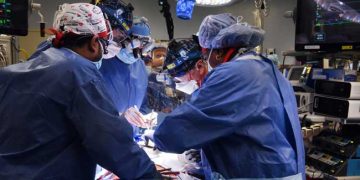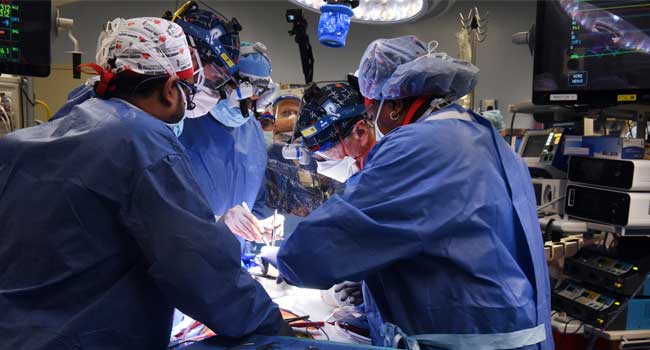A heart from a genetically engineered pig has been successfully placed in a 57-year-old man, a medical first that could one day help solve the chronic shortage of organ donors.
The “historic” treatment took performed on Friday, according to a statement released by the University of Maryland Medical School on Monday. While the patient’s prognosis is uncertain, it is a significant step forward for animal-to-human transplantation.
David Bennett, the patient, had been ruled ineligible for a human transplant, a decision that is frequently made when the recipient’s condition is extremely poor.
Now that he’s recovered, he’ll be closely followed to see how the new organ works.
On New Year’s Eve, the Food and Drug Administration granted emergency approval for the surgery as a last-ditch effort for a patient who was not a candidate for a traditional transplant.
The surgery, according to Muhammad Mohiuddin, co-founder of the university’s heart xenotransplantation program, was the conclusion of years of research, which included pig-to-baboon transplants with survival durations exceeding nine months.
Bennett’s donor pig came from a herd that had gone through genetic modification.
Previous research focused on harvesting organs from primates — for example, a baboon heart was transplanted into a newborn known as “Baby Fae” in 1984, but she survived only 20 days.
Pigskin is grafted on human burn victims, and pig heart valves are widely used in humans today.
Pigs become the best donors because of their size, their quick growth and big litter, and the fact they are already raised as a food source.















